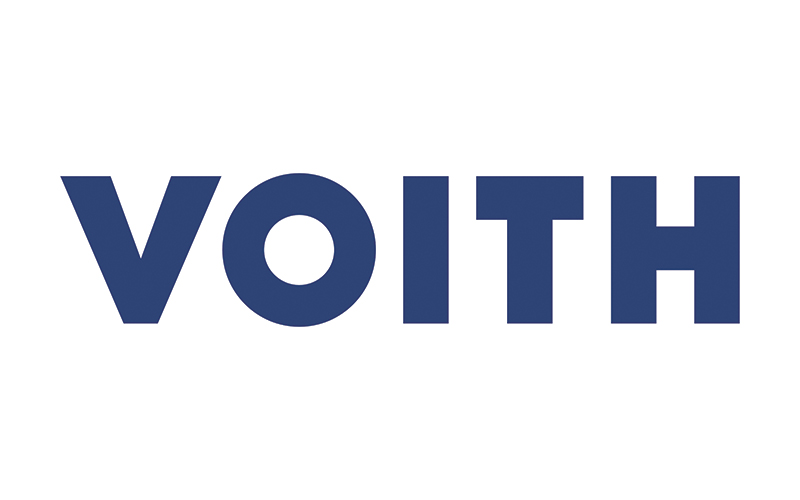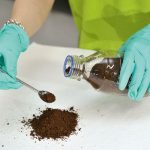Voith Group, as member of 4evergreen alliance, is making efforts towards a green future by providing innovative pulping technologies for sustainable packaging.
Feb 28, 2024

Leading full-line supplier of hydropower plant equipment, Voith Group is fulfilling its commitment towards a cleaner and greener planet by providing expertise in the area of innovative pulping technologies for sustainable packaging.
As a member of 4evergreen alliance, a network of more than 110 members from the fiber-based packaging value chain, the full-line supplier conducts numerous trials in its Fiber Technology Center (FTC), besides carrying out comprehensive investigations and trials.
The global technology company focuses on innovative processes for dissolving barrier papers on an industrial scale.
As a member of the “Novel Recycling Technologies” Working Group within 4evergreen’s Innovation Workstream, Voith is instrumental in developing new solutions. Members from other work streams also draw on Voith’s expertise in stock preparation and recycling concepts.
A statement issued by Bernd Gueldenberg, Senior Vice President Research and Development at Voith Paper said the company was proud to be a leading technology partner in the 4evergreen alliance, driving innovative solutions for the paper industry.
Voith’s expertise in stock preparation and recycling concepts enabled it to actively address the challenges of the industry and achieve sustainable progress, added Mr Gueldenberg.
He said Voith’s commitment focuses on researching and developing innovative pulping concepts to increase the recyclability of fiber-based packaging. The diverse capabilities of the Voith Fiber Technology Center (FTC) play a crucial role in this.
Watch: Top Paper Companies 2023
The Voith Fiber Technology Center offers state-of-the-art research facilities for efficient process analysis and extensive testing capacities for new processes and paper grades. Here, primary and secondary fiber materials are prepared under practical conditions for all paper grades. This enables trials to improve yield, fiber properties, cleanliness and energy efficiency. Locations are in Heidenheim, Germany, and Motomiya, Japan. Available process steps include pulping, flotation, refining, thickening/washing, deflaking, dispersing, screening/fractionation, bleaching, and various centrifugal cleaners.
The FTC serves as a test environment for the recyclability of packaging papers and enables the investigation and development of sustainable solutions in close cooperation with other members of the alliance.
It focuses on projects that address the challenges of sorting and recycling barrier paper and board products. Technologies and processes are being developed to increase the overall recycling rate of fiber-based packaging.
The project is divided into three main steps: First, preliminary studies will be conducted to identify the most promising dissolution concepts. The best evaluated concept will then be tested as a pilot project at the Fiber Technology Center (FTC). After the test runs, the concept will be further optimized and additional investigations will be carried out to ensure the best possible processing of the recovered raw material.
As part of this cooperation, Voith is carrying out comprehensive investigations and trials. State-of-the-art technologies such as near-infrared measurements and NDR measurements are used to detect stickies and other impurities that are introduced into the system via the raw material.
These enable the precise analysis of the properties of paper grades and the detection of impurities such as stickies, but also polyethylene, which is frequently used in barrier papers. The knowledge gained forms the basis for the development of novel pulping concepts and the analysis of the efficiency of cleaning aggregates. A total of around 70 NIR (Near InfraRed) measurements were carried out on selected raw materials to evaluate the different barrier properties.
4evergreen is a cross-industry alliance comprising over 110 members representing the entire lifecycle of fiber-based packaging – from pulp, paper and board manufacturers and recyclers to packaging producers and converters, including brand owners, retailers, and waste management companies.
The members also include non-fiber material suppliers (adhesives, inks, coatings), technology providers (machinery, collection, and recycling solutions), leading research institutes, and start-ups. Together they share expertise to develop tools and guidelines for an even more sustainable sector. Their goal is to reach a 90 percent recycling rate for fiber-based packaging by 2030.
Also Read: Voith Unveils Digital Solution Onview.Energy for the Paper Industry
Fiber-based packaging plays a crucial role in the circular economy. With a recycling rate of an impressive 82.5%, they are already making an important contribution to sustainability. Compared to other materials such as metal (74.8%), glass (74.9%) or plastic (39.7%), they perform significantly better.
Fiber-based packaging also scores highly in terms of climate protection. Since 1990, carbon dioxide emissions have been reduced by 48%. In addition, more than 60% of the energy required comes from renewable sources, making the industry a pioneer in the use of regenerative energies.
European consumers prefer packaging made of paper and cardboard due to its sustainable properties. For 62%, this type of packaging is better for the environment and 57% consider it easier to recycle than other types of packaging.
In addition to their focus on innovation, 4evergreen alliance works on defining important Europe-wide standards for the paper and cardboard industry. These include the Recyclability Evaluation Protocol – to assess the recyclability of individual fiber-based packaging products – and the Circularity by Design Guideline – to ensure that packaging is designed for optimal recycling from the start. At the same time, the members are developing recommendations for collection and sorting systems through the Guidance on Improved Collection and Sorting.



